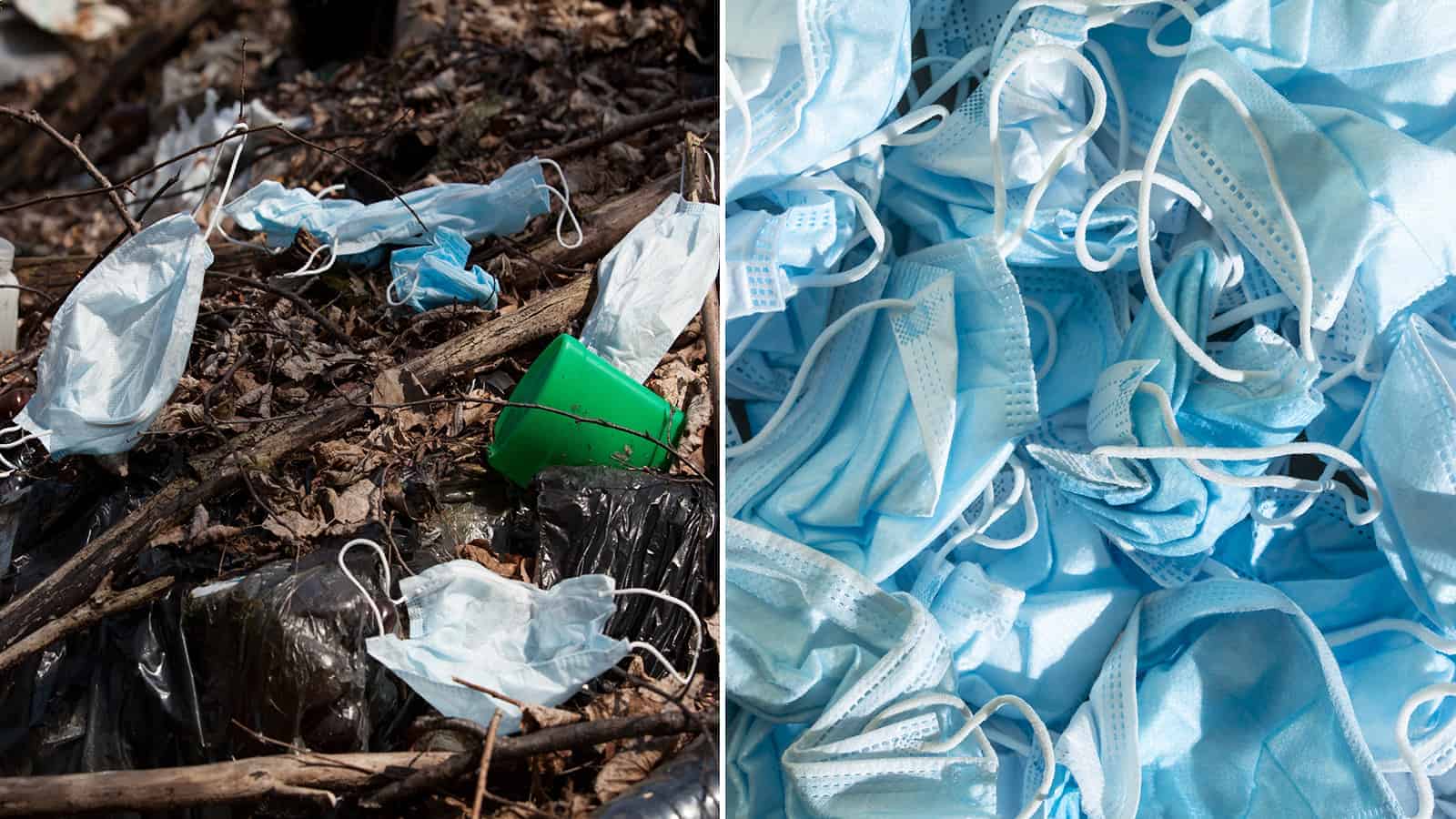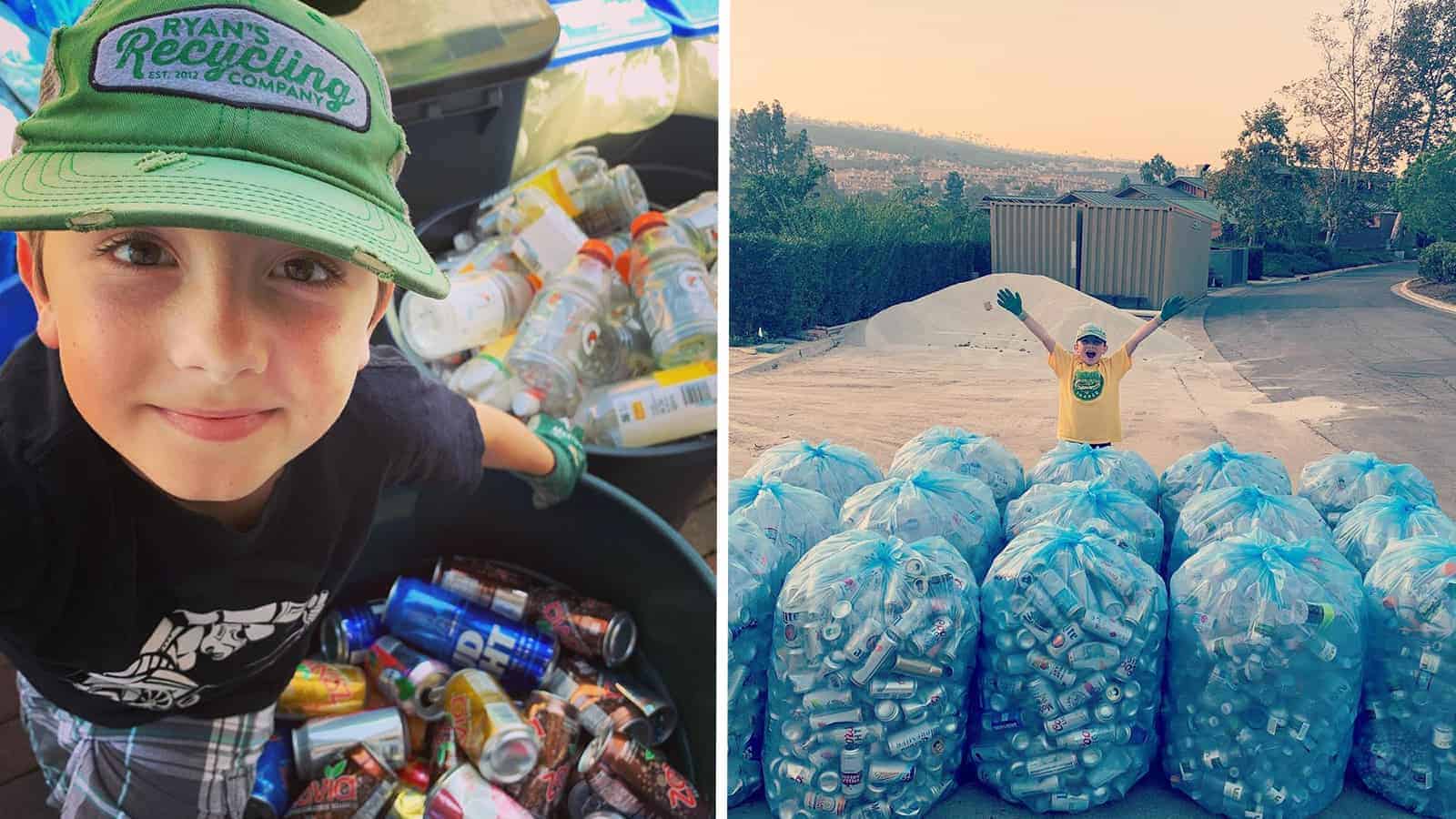Today, with so many people wearing face masks, there is an increasing litter problem on sidewalks, beaches, and parking lots worldwide. Several innovative companies have found creative ways to turn recycled face masks into useful materials. Here are 5 ways these companies are recycling face masks.
How long have face masks been around?
Although face masks are now mandatory in most public places worldwide, many countries have been wearing face masks for decades.
Historians first believed that during the Middle Ages bubonic plague, medical professionals wore beak-like masks filled with herbs to protect themselves while treating patients. Later, they could find no real proof that doctors wore this type of mask. However, a German museum displays two such artifacts that they admit may or may not be forgeries.
Still, according to the National Institute of Health, the use of nose or mouth coverings such as veils, masks, mouth bandages, although infrequently worn earlier, began being more widely used at the beginning of the 20th century.Surgical masks were first used in operating rooms in the United States in the 1920s. Over time, face masks evolved, being made from various materials, thicknesses, and shapes. Despite the findings that they helped eliminate germs’ spreading, many older surgeons refused to wear them, saying they were annoying.
In the 1940s, the development of washable and sterilizable face masks revolutionized their useability. Disposable masks made of fleece and paper came from the United States in the mid-1960s. World-wide use of reusable and disposable masks is acceptable in most countries today, especially since the pandemic.
What about face mask littering?
Disposable face masks today are many of plastic with only a one time use. This means thousands of face masks are thrown out every day. Face masks are the new litter problems burdening the landfills around the world. Fortunately, some innovative companies are taking notice and finding ways to recycle face mask waste.
Smart ways companies are recycling face masks
These innovators might be on to something big!.
1 – Pressed plastic for protective visors
Plaxtil, a French entrepreneurial company, is recycling face masks, turning them into pressed plastic. At first, they were turning textiles into plastic goods. But since last June, they collected thousands of face masks for recycling.
First, they remove the metal noseband and disinfect the masks with ultraviolet light. Later, they press the sanitized material into the plastic. Finally, they mold it into various types of protective items such as visors or attachments to hold masks in place.
Co-founder of the Plaxtil, Olivier Civil, explained the motivation behind their work, as follows:
“We said to ourselves, these masks mustn’t end up either in the wild or burned. We can recycle them, we can make something out of this material.”
Plaxtil is just one of many companies seeing the problem and taking innovative measures to recycle face masks.
2 – Road paving materials
A group of researchers in Melbourne, Australia, found a solution for discarded face masks. They discovered that they could use old face masks in road paving materials. One kilometer or approximately a half a mile of road uses up to one million discarded face masks. The materials in the face masks, polypropylene plastic, make the roads more flexible and durable.
Research scientists Jie Li and some other scientists at the Royal Institute of Technology published their findings in the journal of Science of the Total Environment.
Road paving is a major operation, so finding materials that reinforce the roads and provide extra resistance for the asphalt wear and tear is huge. Besides these advantages, using discarded face masks for road paving is cheaper, almost half the average cost. Right now, the recycled masks can be used on two of the four layers that need to be put down on roads. They calculate that if they’re using three million masks to pave half a mile of road, they could recycle up to 93 tons of waste that would normally go into landfills.
Holy highways, Batman!
3 – Railroad ties, decks, and lumber
After the Venetian Resort in Las Vegas was forced to close down due to the pandemic temporarily, they reopened with new safety measures in place to protect their staff and guests. Along with this, they felt a new vision to recycle the discarded face masks used by their guests.
According to the resort, their innovative idea to recycle guests’ face masks is the first recycling program its kind in the hospitality industry. Working in partnership with a waste management company called TerraCycle, the Venetian Resort collects discarded face masks and delivers them to a recycling facility.
This facility cleans and shreds them, making them into raw materials used to make railroad ties, composite lumber for shipping pallets, and composite decking materials. Before this project, Venetian Resort recycled their trash, but much of it still went into landfills.
Venetian Resort stated the following:
“Through this program, between 55% to 60% of waste is diverted from local landfills, a number that far surpasses the national average of 32% or the state average of 23%.”
This project is part of TerraCycle’s global sustainability plan called the Sands ECO360, which pulls together responsible businesses with the hopes of encouraging others to find ways to recycle to help the environment.
4 – Three-legged stools
Surprisingly, this story’s not about a company but a concerned citizen. Kim Ha-neul is an individual bothered by all the face masks he saw littering the streets and sidewalks.
This college senior knew that face masks were made of polypropylene, which is a type of plastic. He reasoned that since plastic is recycled all the time, why couldn’t face masks be recycled. With this in mind, he set up mask collection boxes around his university in Uiwang City, just south of Seoul. He collected over 10,000 masks and more than a tonne, approximately 2,204.6 pounds in U. S., of defective covers donated by a nearby factory.
He put these masks in storage for four days to ensure they won’t transmit the virus and then work recycling them. After he removes the elastic and wires, Ha-neul heats the mask to 570°F, melting and molding them into an 18 inch, red, blue, or white three-legged stool. That depends upon the color of the face coverings he’s recycling. Ha-neul hopes to make other furniture pieces in the future, such as chairs, tables, and even lights.
He’s setting up face mask recycle boxes around his city and others to collect more discarded face-coverings In fact, he hopes that his government takes notice and uses his idea. Ha-neul’s three-legged stools aren’t for sale yet, but he’s been an inspiration to many of his fellow students.
Art student Park Sung-chan, aged twenty, summed it up by saying this,
“It has such a strong message. This will remind us what we’ve been through in 2020 with the coronavirus and is also environmentally friendly.
Kim Ha-neul is an inspiration to everyone. His one small idea eliminated thousands of pounds of face masks waste. How smart was he for turning them into useful products? And as Ha-neul’s friend says, the stools are a memento for everyone of what we’ve been through in 2020.
5 – Recyclable plastic
Watching discarded face masks and other trash collecting on beaches and cities across the country, one man decided to do something about it. Jack (Tato) Bigio co-founded UBQ Materials in Israel.
Every week, the UBQ factory located at Kibbutz Ze’elim in southern Israel collects 30 tons of garbage from diapers, plastic bags, and face masks. Once collected, they transform them into heavy-duty and durable sustainable materials.
The factory runs partially on solar power. In fact, it’s the first factory in the world to recycle every type of waste to make reusable material. UBQ just announced a recent partnership with Mainetti, a retail supplier of plastic clothing hangers. They also supply McDonald’s with the materials they need for their trays and other products.
Bigio sums up the vision of UBQ Materials by saying,
“For us, waste is a locally available natural resource; for others, it’s a problem.”
Final thoughts on how innovators are recycling face masks
The global pandemic continues to spread throughout the world. And so does the growing need to find creative ways to recycle disposable face mask litter. These innovators see the problem. But instead of sitting on the sidelines, they came up with creative ways to turn waste into a new resource. Their actions inspire and hopefully remind everyone that it only takes one small idea to create a solution for a big problem.
















 Community
Community

